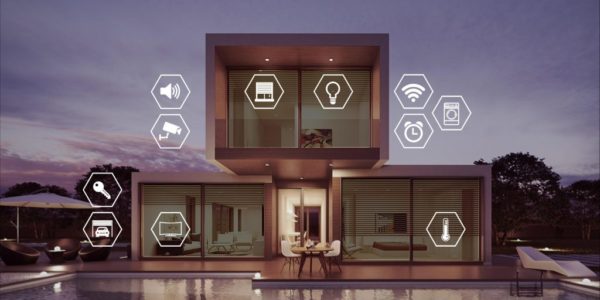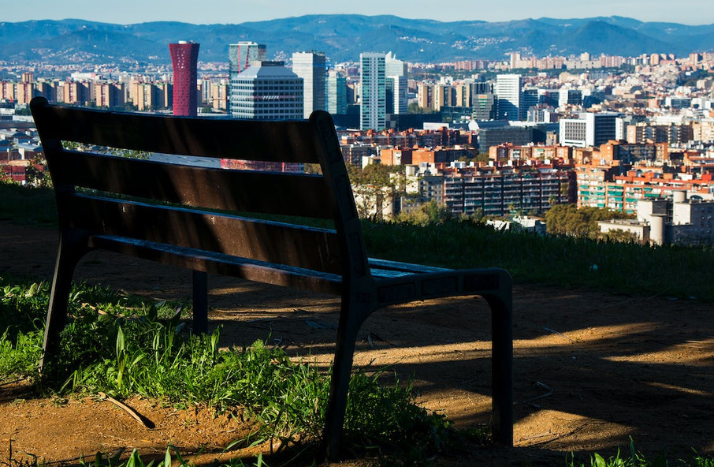
Real estate is still seen as one of the most stable and profitable markets in Spain but as we have seen over the past two years, the industry is still susceptible to cyclical changes.What can we expect from 2022?
As was the case across the world, the health crisis triggered changes in many different aspects of our lives, a large number relating to residential preferences, given the amount of time we are all spending at home. Here we look at some of the real estate trends in Spain which we believe are set to continue in 2022 and beyond.
1. More Virtual Tours
High quality photography, virtual tours and video footage of the local neighbourhood have become the norm during 2021, not only so that potential buyers can conduct viewings remotely but so that they are also given a true sense of where they could be living.
Virtual tours have been a viable alternative to open houses which have long been an effective tool for sellers. But as doors to properties are remaining prohibitive to large groups, increasing numbers of agents are turning to technology to boost sales.
2. More Smart Homes
As we all become more aware of the need to preserve the environment and not waste energy, we can expect to see greater adoption of smart home technology especially for things like appliances such as washing machines and fridges, home entertainment and security systems as well as environmental controls like heating and lighting. Smart home systems allow users to have a greater awareness of how their resources are being utilised.

In a smart home, people can put on the washing whilst at work or optimise heating to only be on when they are at home. Some town halls in Spain are already rewarding those who install solar panels by reducing their council tax (IBI) by up to 50% for an average of three years.
Are you thinking of selling your house in Barcelona or nearby? We can help you to do it quickly. Access this result now to find out more:
Sell your flat now with Bcn Advisors
3. Mixed Use Development
Mixed use development or mixed use zones include the likes of hotels becoming housing, offices becoming both office and residential, parking becoming self-storage, retail areas transforming into experiential live/work environments.
Advantages include energy conservation by promoting efficient land use, reducing reliance on the use of vehicles, and establishing communities based on smart principles; shared infrastructure such as parking reducing operating costs; greater long-term appreciation of property values; encouraging regeneration and redevelopment and a focus for growth in suburban communities.
4. More Property Tech Innovations
PropTech has already begun to transform an industry by digitilising its services. By creating more efficient systems such as reducing paperwork and making transactions quicker, PropTech will allow real estate professionals to focus more on the interpersonal aspects of the business.

New trends are emerging across all sectors of the real estate industry such as co-working, co-living and crowdfunding for real estate investing. New professions such as virtual home staging specialists or drone pilots are also emerging alongside traditional real estate industry jobs.
5. Increase in the Use of Digital Cryptocurrency
The technology behind cryptocurrency (such as Bitcoin) has the potential to revolutionise the real estate financial sector and will likely play a key role in property transactions in the future
Buying property with cryptocurrency is fairly straightforward – buyer and sellers just need to agree to use cryptocurrency for the transaction. The price of the property remains fixed in the local currency, even when there are fluctuations in the crypto market, however.
6. Higher Customer Service Expectations
Homebuyers are now expecting the same strong customer experience from real estate agents that they might get from modern online platforms.
Those that that deliver on those expectations will set themselves apart. Real estate is increasingly becoming a customer-centric business and technology like tenant experience platforms increasingly will become the norm.
7. Renovation and Modernisation of Homes
The renovation market was buoyed through the early months of the pandemic as people spent a considerable amount of time at home and realised the need to update or modernise indoor and outdoor spaces for work, school, play, exercise, and more. Fewer people are eating out and more are cooking and eating at home, so kitchens are being remodeled to even more be the centre of family life.
The home office has become a must in most properties whether it be a bedroom conversion or an annex to an existing room. Home gyms are becoming increasingly popular as many public gyms have remained closed. A cinema room is also an asset. Overall, people are spending more on their homes and gardens in the realisation that considerable periods of time spent at home is becoming more commonplace.
8. Outside Space a Priority
Covid-19 has meant that the market has seen peak demand for homes with outside space, whether it be a balcony, terrace, garden or large plot. Buyers who have been interested in these apartments often have very little time to think as demand has been so high.
Researchers have also discovered that homeowners with no access to outside space suffered from anxiety more than those who did. An outside space can offer a sanctuary to homeowners who benefit from being as close to nature as possible during office hours.


 Costs of living in Barcelona vs USA
Costs of living in Barcelona vs USA
 Evolution of the Barcelona real estate market: Q4 2024
Evolution of the Barcelona real estate market: Q4 2024
 Barcelona property price forecast 2025
Barcelona property price forecast 2025
